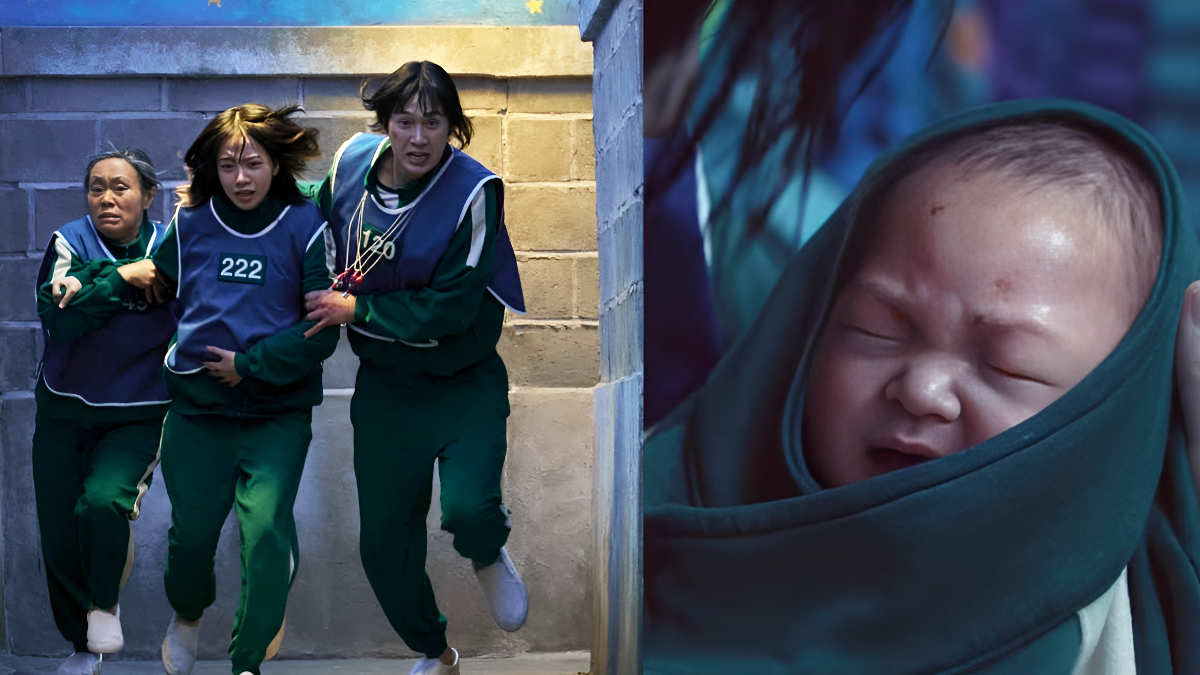Squid Game returned for its highly anticipated third and final season on June 27, with director Hwang Dong Hyuk steering the final chapters of Seong Gi Hun’s (Player 456) mission to end the deadly games once and for all. While fans were eager to see how the story would conclude, one scene from Episode 2 has sparked intense controversy online the abrupt childbirth of Player 222, played by Jo Yu Ri.
Viewers Slam Unrealistic Portrayal of Labor
In the now-viral scene, Kim Jun Hee (Player 222) unexpectedly goes into labor in the middle of the games. With only fellow contestant Geum Ja (played by Kang Ae Shim) by her side, she delivers a baby in under five minutes — with no visible pain, no complications, no medical assistance, and no realistic signs of postpartum trauma. Moments later, she appears to vanish from the narrative, leaving viewers bewildered.
this cgi ass baby is killing me #SquidGame3 pic.twitter.com/qpwclG37ni
— ᛝ rye (@rksrye) June 27, 2025
Social media erupted in criticism, especially on X (formerly Twitter). One user wrote, “She literally WALKED OFF childbirth like it was nothing. Her broken ankle got more attention than the baby!” Another added, “Where was the amniotic fluid? The placenta? The fatigue? Who wrote this?”
Hwang Dong Hyuk Under Fire
Many fans accused director Hwang Dong Hyuk of lacking even basic understanding of childbirth. Viewers pointed out the scene’s failure to depict critical elements such as bleeding, exhaustion, and recovery, along with the baby appearing completely healthy despite minimal care or support.
the fact that junhee gave birth in under 10 minutes and then walked it off like she was doing it every other week is making me ctfu WHO WROTE THIS!!!!😭
— olli🌟 | squid game 3 spoilers!! (@gaybyeok) June 29, 2025
Despite this backlash, Squid Game Season 3 remains popular globally. However, this controversial moment has ignited wider discussions about realism and responsibility in storytelling, especially when portraying real-life, medically sensitive events like childbirth.

